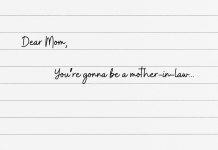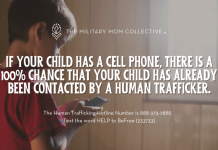“Oh don’t say that word around Courtney,” my friend joked after hearing another mom share about her hectic life.
The mom laughed with confusion. “What word?”
Oh great, I thought. How do I want to handle this? I smiled and said, “The ‘b’ word.”
Even more confused, the mom looked at me and embarrassingly lowered her voice, “but I didn’t say b*%ch.”
“No,” I laughed. “Busy. That’s the ‘b’ word.” Welp, so much for sidestepping this one, I realized. “You really don’t have to avoid using that word,” I told the confused looking mom.
Intrigued she inquired, “Well now I”m curious. Why don’t you like the ‘busy’ word?”
Here is what I told her:
We wear the word “busy” like a badge of honor. I believe this word is glorified and deceptively dangerous.
Busy=productive=highly valued=how I define my worth.
It’s not always that simple equation but, more often that not, it is.
You may be thinking, But isn’t it just a word, Courtney? I mean, what’s the big deal? Excellent question! You see our brain is always listening. It hears the words we use and takes them as cues to create situations and experiences that reflect them. For example, if I’m consistently using the word busy to describe my mood, my actions, and my outlook, how do you think I’m going to show up in those areas? You better believe it-busy.
You know what busy leads to?
Burnout.
Resentment.
Exhaustion.
Overwhelm.
In other words, nothing awesome. I see this all the time with my clients. They’ve spent their childhoods busy, shuttled from one playdate, enrichment activity, or school event to another. They’ve spent their adolescence filling their calendar with activities that give them an advantage when applying to competitive colleges. Teenagers are anxious, stressed out, and depressed now more than any generation before.

And guess what happens to burned out teens? They grow into burned out adults who have no idea how to cope or deal with the increasing stressors and demands of life.
All they know is that they have to keep going. They end up chasing a life they don’t even want but have been tricked into believing they do. We look around and see everyone running around, shuttling their kids across town, working 12+ hour days. And the funny thing is that very few people are happy to be living like this. I know this because I work with high-performing and high-achieving individuals. They’re miserable. They’re on this hamster wheel, and they don’t know how to get off or even why they got on in the first place.
We’ve become so detached from our feelings because we’re so busy doing. “Hey, Deb. How ya doing?” “Oh, you know, just busy.” When someone asks us how we’re doing, we no longer even respond with a feeling. Busy is not a feeling, but we are quick to use it to describe our day, our mood, and life in general.
I am absolutely guilty of answering with the “b” word in the past. I’ve let this word be my buffer so I didn’t have to feel whatever it was that I was too consumed with to experience.
I reassured this mom that I was in no way trying to shame her or make her feel bad for using the “b” word. My intention is to bring awareness to how one word can create a mentality which creates a reality that becomes all-consuming. And to empower you to slow down.
But how? How is that even possible when you feel so far into the career or volunteering or Pinteresting?

Here are three practical things you can do to be less busy (and it doesn’t require anything major):
- Pay attention to how much you use the “busy” word. Then ask, what role is this playing in my life? Yes, it’s just a word. But language is incredibly powerful and, as I discussed previously, our brain takes note of what we say.
- Give yourself permission to sit for five minutes and do absolutely nothing. Close your eyes and focus on your breath. You can call this mindfulness or meditation or a break. As long as you give yourself permission to do absolutely nothing and just be, that counts. Start with five minutes, then work up to 10. It will feel unnatural at first. You will have a lot of resistance. Push through it.
- Create a buffer in your day. If there is no margin in my schedule to console an upset kid or call a friend or check-in with my spouse, then my day is not aligned with my values. It’s OK to have space in your day. Back-to-back meetings and activities are not good for the soul.
Change doesn’t happen overnight. Slowly, you can abandon the busyness and begin to embrace a life of peace and joy. How do I know?











